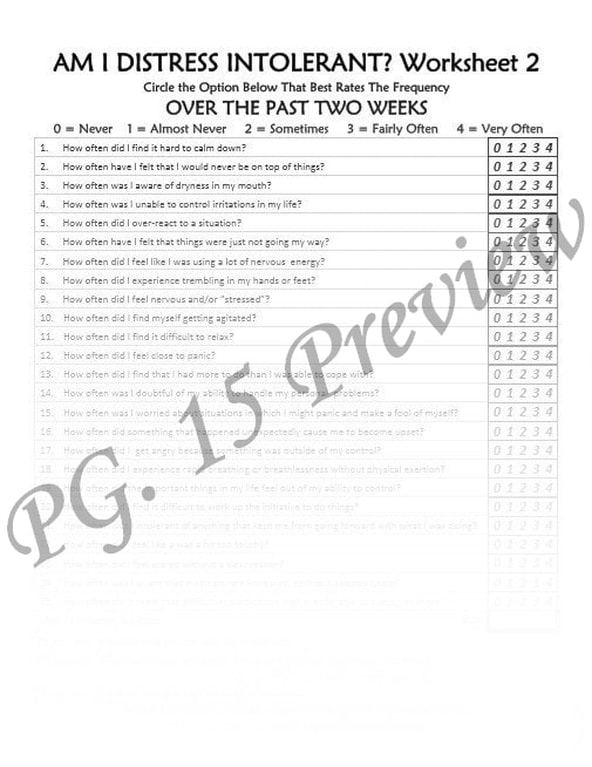CONSULTANTS
Ward, PhD, BCBA-D bSci21Media, LLC Brett DiNovi, M.A., BCBA Brett DiNovi & Associates Behavior analysis has been around at least since Skinner’s (1938) publication of Behavior of Organisms. At the end of his. Schools, my training in contemplative prayer practices through the Shalem Institute’s spiritual guidance program, and my 35 years as a Zen student—and now Zen mas - ter. Mindfulness of current thoughts also draws from acceptance and commitment therapy. In general, DBT skills are what behavior therapists tell clients to do across.
NEED FOR MENTAL HEALTH OUTCOMES MEASUREMENT
Schools, my training in contemplative prayer practices through the Shalem Institute’s spiritual guidance program, and my 35 years as a Zen student—and now Zen mas - ter. Mindfulness of current thoughts also draws from acceptance and commitment therapy. In general, DBT skills are what behavior therapists tell clients to do across. Behavior Management Workshops – Online Training If you cannot attend the workshops in person, you may take the 12 hours of behavior management training online at your own pace. The online training ADEPT 1 and 2 - Autism Distance Education Parent Training developed by the UC Davis - Mind Institute, is based on the principles of Positive.
The Patient Protection and Affordable Care Act has accelerated the realignment of healthcare payment systems so that providers are reimbursed based more on the value of their care than on volume. Emphasizing value over volume is impossible without the use of reliable and valid outcome measures.
Outcomes measurement tools like the DLA-20 allow behavioral healthcare providers to access hard data to examine progress or lack of progress in patients and in doing so, to partner with patients toward recovery. It is an approach that can improve the chances for people with mental illness to live more independently and participate more fully in their communities.
Outcomes measurement and monitoring helps persons with mental illness manage their treatment, which can sharply reduce the need for specialized, high-cost services. Additionally, functional assessment tools allow behavioral health centers to partner with a host of primary care and health home partners because the program provides the type of measurable outcomes — with a verified reliability and validity — that payers need. Functional assessment shifts the practitioner-patient dynamic from “We’re going to try and keep you out of the hospital” to “We’re going to try and help you function better.”
CONSULTING SERVICES IN MENTAL HEALTH OUTCOMES MEASUREMENT
A research-backed outcomes measurement tool, the Daily Living Activities-20 — brought to you by MTM Services and the National Council for Behavioral Health — measures the daily living areas impacted by mental illness or disability. The DLA-20 supports the functional assessment data needs of service providers. It provides a quick way to identify where outcomes are needed so clinicians can address functional deficits on individualized service plans. This tool ensures valid scores and consistent utilization for healthcare report cards.
The DLA-20 is intended for use with all disabilities and ages. The information yielded by DLA-20 is critical for treatment planning and estimating Axis-V (Global Assessment of Functioning) of the DSM-IV and contributes valuable information for psychiatric approval for Medicaid reimbursement and healthcare reporting standards.
The patient’s primary clinician or case manager typically has the most information about daily functioning at home or in the community and is best prepared to complete the DLA-20. The tool has been shown to take approximately 6 to 10 minutes to complete at the conclusion of an assessment.
The DLA-20 is a copyrighted tool available for free use after a 3.5 hour training delivered via webinar by MTM Services and the National Council. Psychiatrists, clinicians, case managers, quality assurance officers, human resource trainers may participate in the DLA-20 training which identifies why functional assessments are at the forefront of audits and accountability. Trainees participate in established pretests in order to experience the definition of reliability and validity. They are introduced to criteria for scoring the functional assessment through a sample patient’s functional assessment. Subsequently, supervised small groups congregate to assess how the DLA is actually used; confront questions and misconceptions; and learn to develop measurable goals and treatment plans. Participants later reconvene to examine DLAs and their correlation with level of care assignments; DSM-4; Axis V (GAF); scoring GAF with and without objective criteria; and using functional assessments in treatment plans, progress notes, and tracking outcomes.

RESOURCES FOR MENTAL HEALTH OUTCOMES MEASUREMENT
Advancing Care for Schizophrennia Report
The Advancing Standards of Care for People with Schizophrenia program, spearheaded by the National Council for Behavioral Health, was administered at 10 community behavioral health organizations across the country in 2011. The program significantly improved communication, social interaction and coping skills for persons recovering from schizophrenia through the use of DLA-20. Read the full report from the program.
Using the DLA 20 for Better Outcomes

21 Pdf Previewdialectical Behavioral Training Center
Annie Jensen, LCSW – Senior DLA-20/Process Change Consultant with
Sheila Rapa, PsyD – Chief Clinical Officer – Chrysalis Health, Inc. (Fort Lauderdale, FL) and
Ralph May, Jr., PsyD – Chief Clinical Officer – Community Guidance Center(Indiana, PA)
How does your organization define quality outcomes for the services you provide? The DLA-20 is a reliable and valid outcome tool that measures improvement, quality and value for all individual ages 6 and older. Hear firsthand how the DLA-20 is demonstrating proven results within Community Behavioral Health Centers.
Learning Objectives:
21 Pdf Preview Dialectical Behavioral Training Tool
- Describe how the DLA-20 is used to reliably demonstrate functioning in 20 daily living activities.
- Analyze two CBHC case studies that will be presented on how they have implemented the DLA-20 and the client-level outcome information they have achieved.
- Understand the various DLA-20 tools and the populations they serve.




